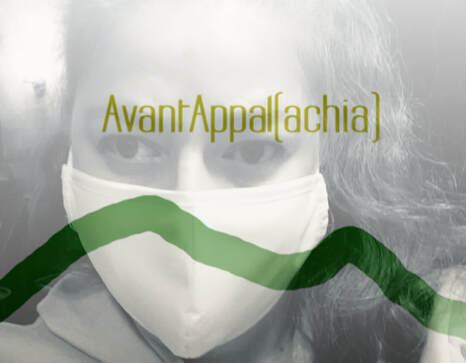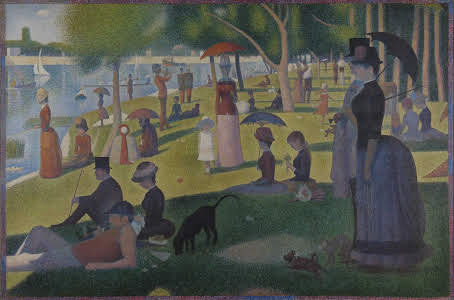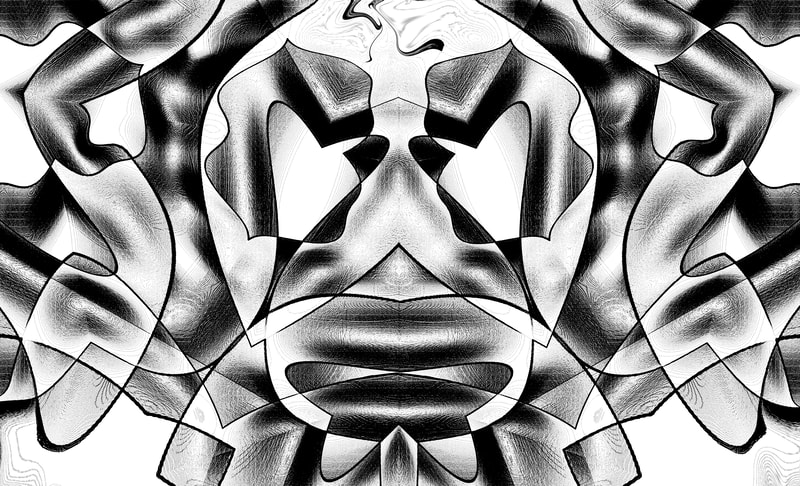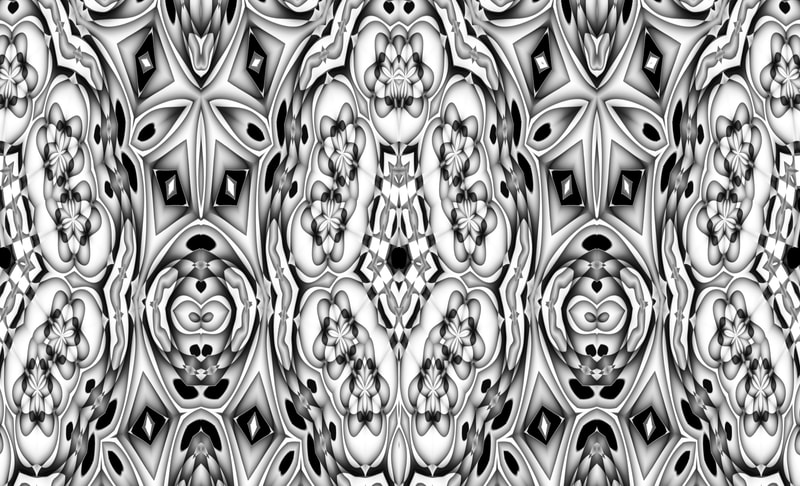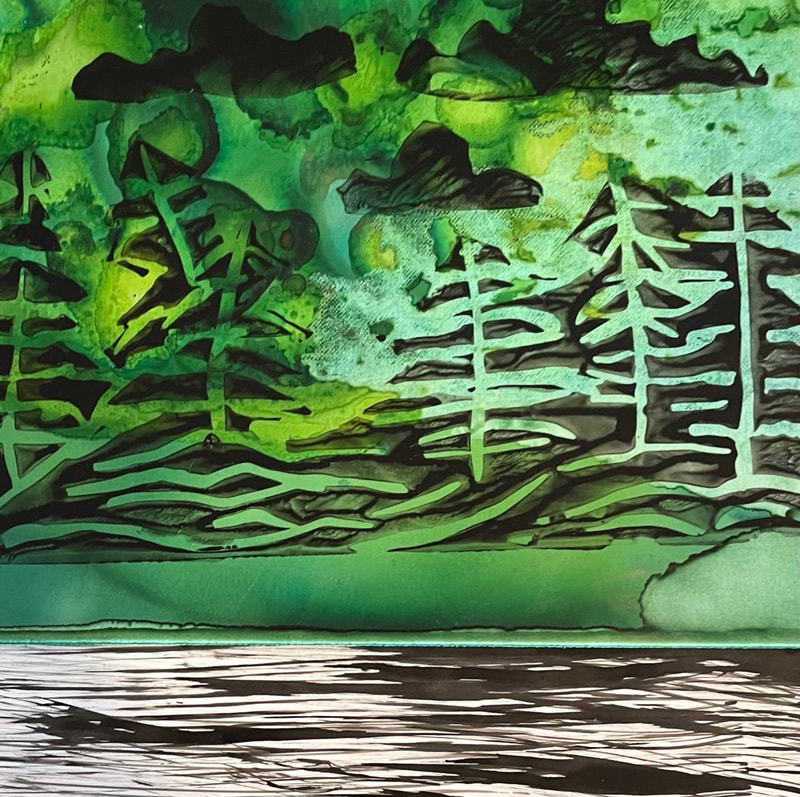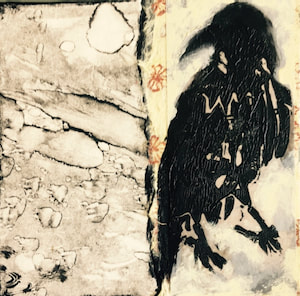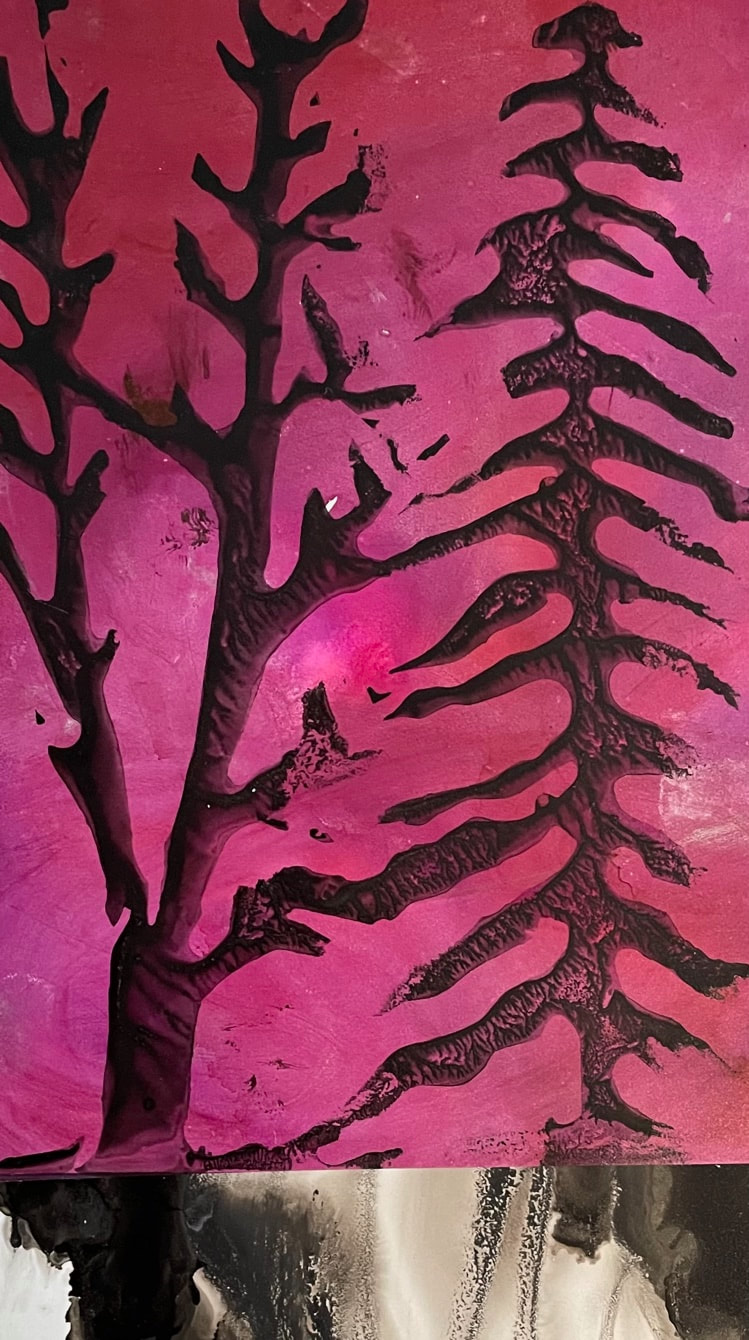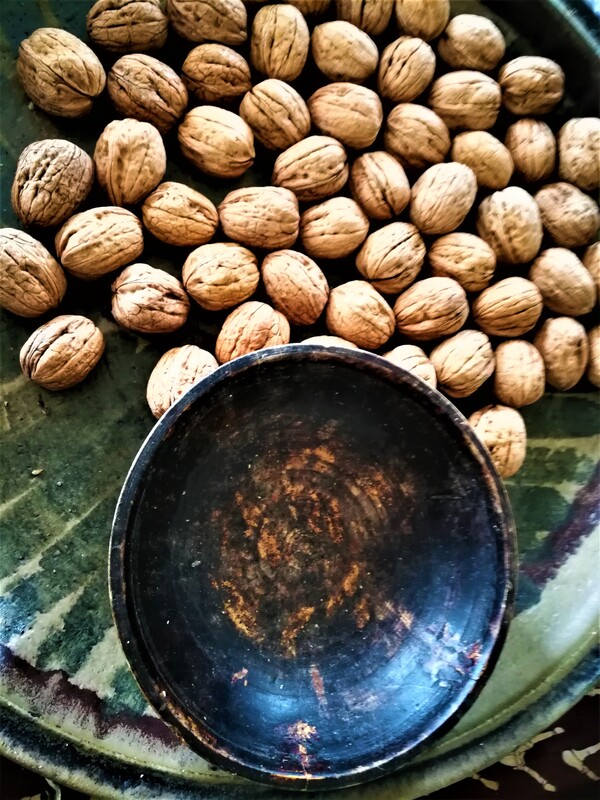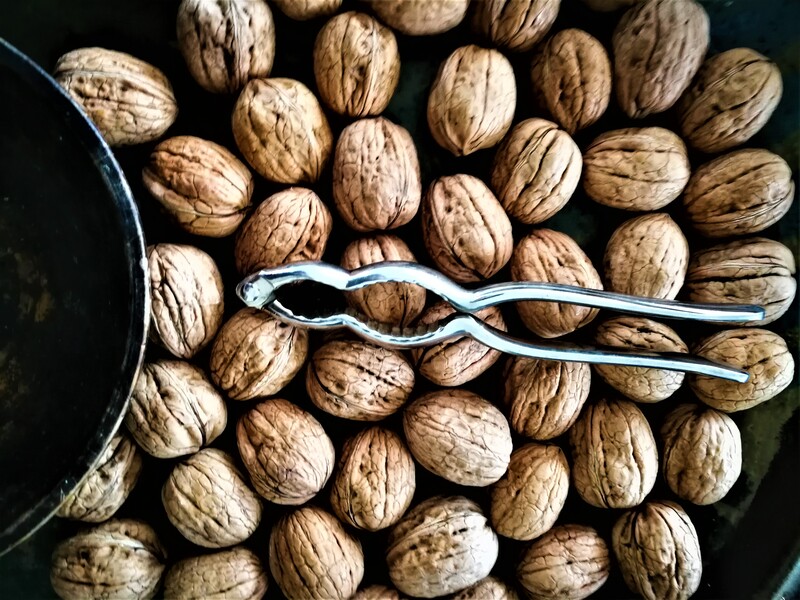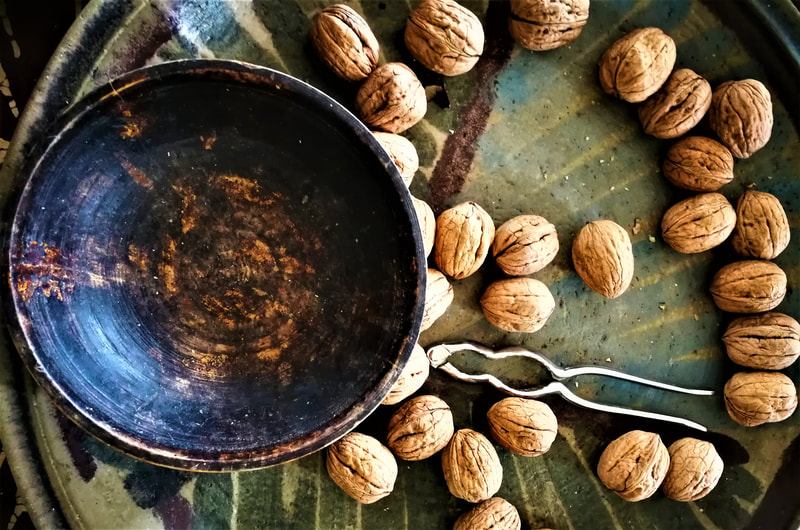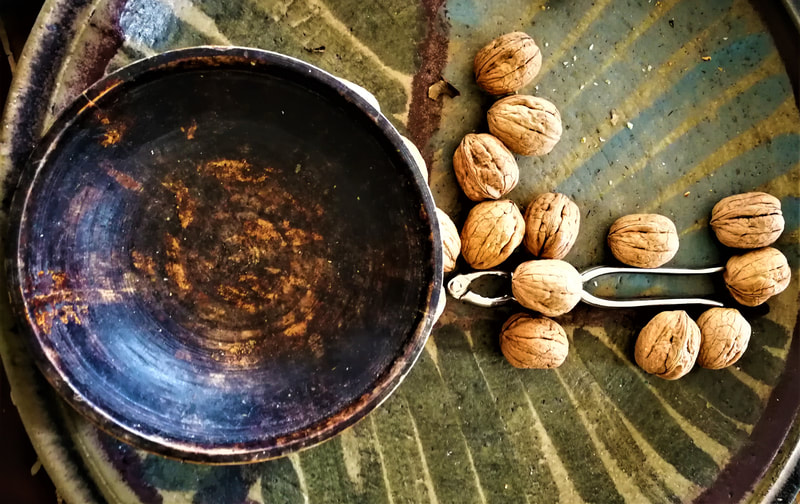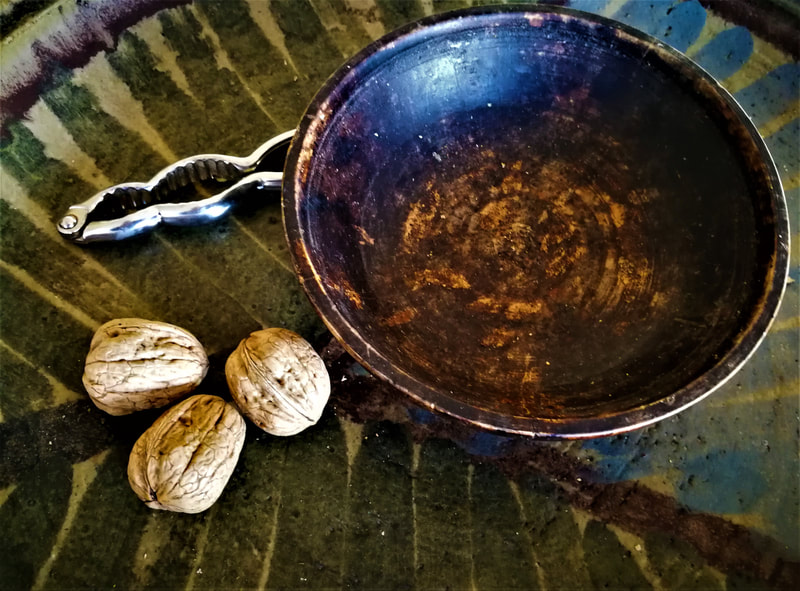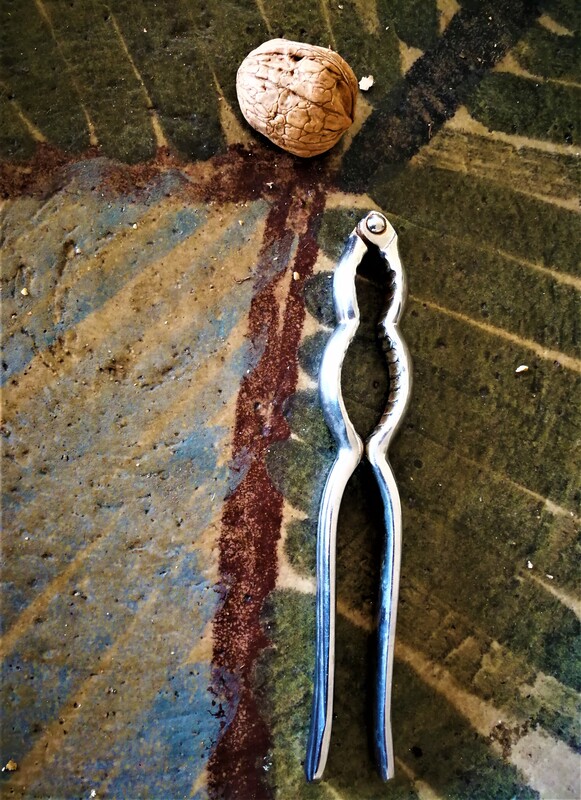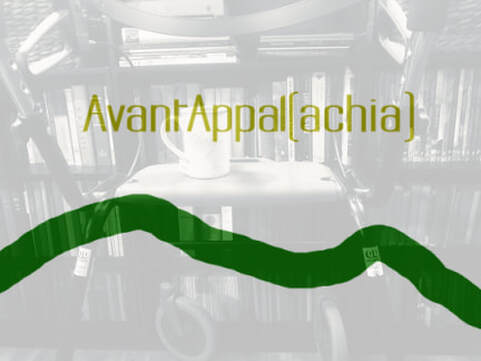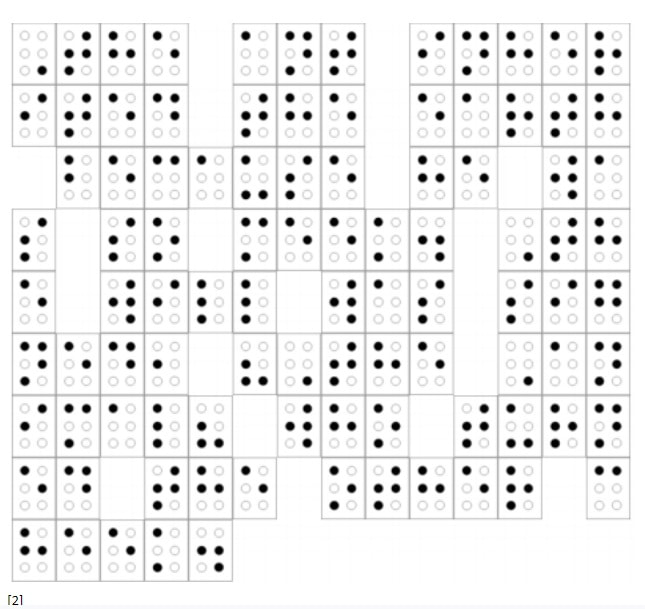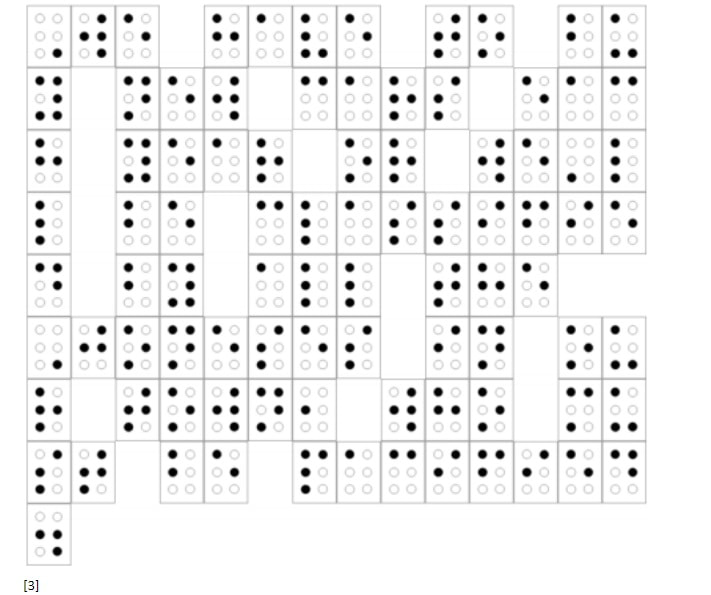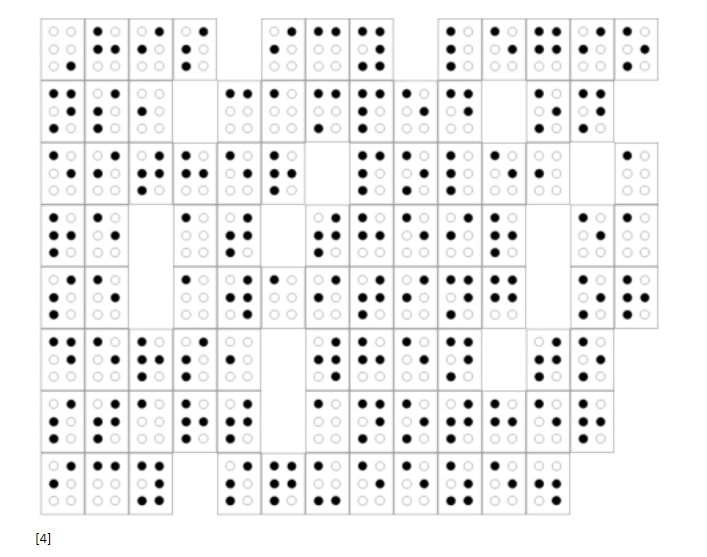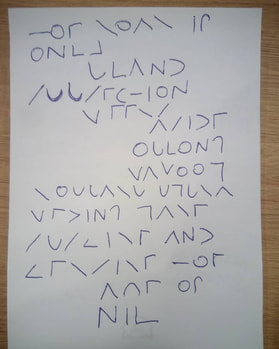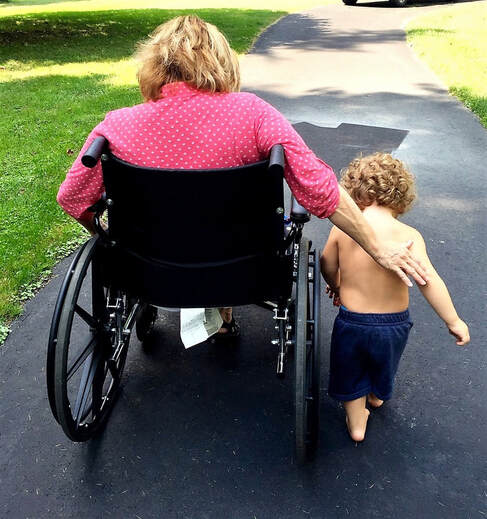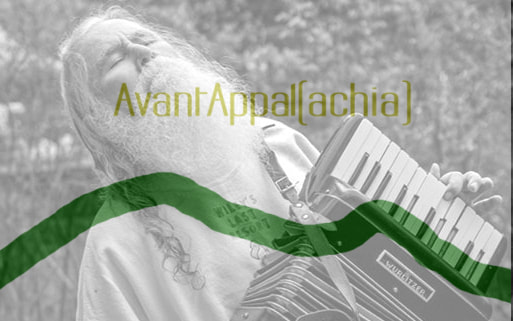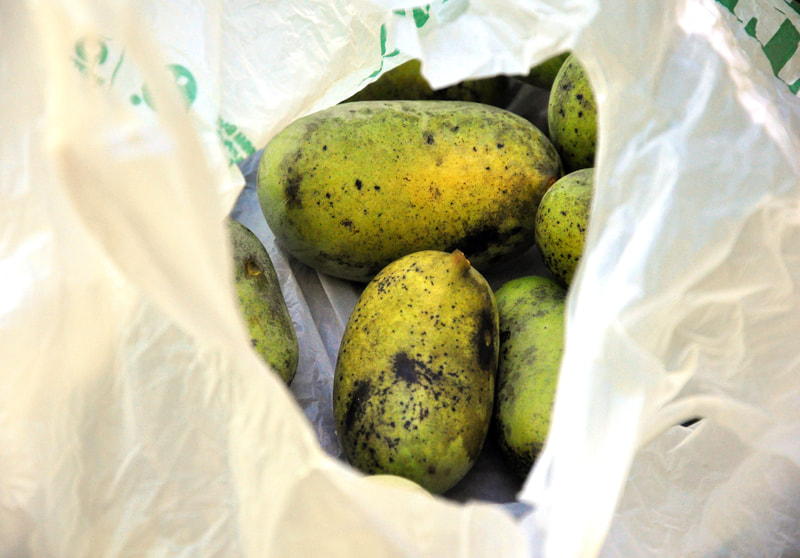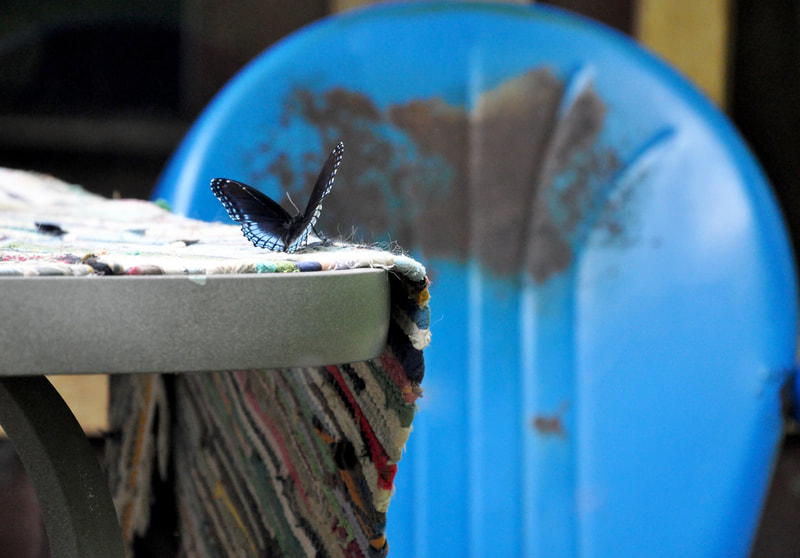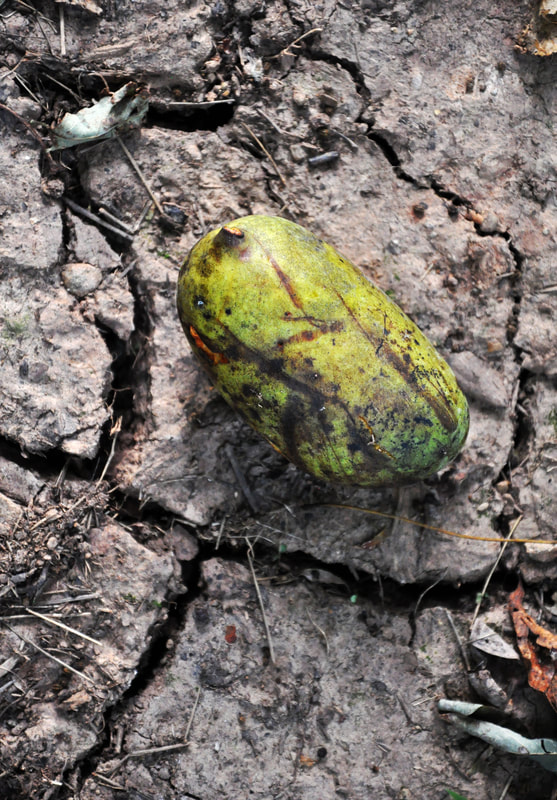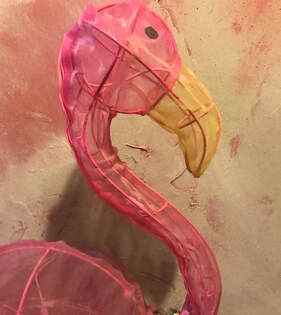THe ModerN Plague Years Is(sue)
Photo credit: Sabne Raznik
Avant(Poetry)
|
"Quarantine Queue (Spring 2020)"
Charles A. Perrone, California So a vast viral event is unfolding
and by order you're in quarantine now you have time on your hands to do so many things that obtain brush those teeth over and over clip those nails with frequency select best quarantunes to listen to youtube watch endless old cartoons retrieve ancient letters from the attic and write back to those you neglected for all those years of loving and lust decades able to convince you that finally you must "quarantine"
kati taylor, Texas front porch sitting with coffee and an unnecessary hoodie.
doves coo hellos and instructions to their brood. jasmine encases the porch columns- early buds seeping the slightest fragrance as a wasp builds its first comb on the front door. his work will be destroyed in the afternoon. two days later, jasmine flowers burst open- windows fly open so the scent may perfume the rooms. and the wasp will find a new place to build. and a squirrel will frighten her at dawn- she is awoken with a start for someone knocking at the door, but it’s just him- pulling back a loose piece of wood- thump- thud- thud- in desperate search of a new hiding spot for early spring stores. but the air has also been invaded by a virus yet to be understood- the home is closed off to the world- its occupants finding refuge within its simple walls and the jasmine grows thick til the door cannot be seen- it wraps through the handle and encases the home- days begin to link together in a chain of dawns and dusks with no system- the rhythm of their hearts start and end the days with imperceptible division invisible to the world- they eat banana bread made from frozen stores and flour claimed from pecans discarded by the backyard trees- and they drink tea- there is a ration of rice and beans and- frozen peas with bits of canned fish and- spring becomes summer- the loquat tree in the alley provides sweet fruit- the crepe myrtle blooms entertain- with a twist of their finger tips swollen, low hanging buds turn into tiny, turning parasols- higher buds will burst and weep gentle shy tears at the end of the hottest days and when fall comes and the jasmine dies back- might the door crack open and waifs emerge- stronger- for they’ve become free of the world "Life Lost"
Sandi Keaton-Wilson, Kentucky I had prayed for a hefty, lengthy snow, in due season,
as an excuse to nest, prepare for birth of new dreams- a good reason to snuggle in with candlelight and knowledge that I wasn't really missing out on much as my little corner of life was mostly at a standstill. But snow finally melts and mufflers don't really muffle, like a mask that smothers and bothers, yet is a necessary evil, an apt barrier to germs from hell. Years now, of fear and fury, of prayers that were answered and many that were not. Isolated even from more liberal family, from perusing aisles in grocery stores and Goodwill. Often sitting in a car in front of the church, drive-in worship, brethern in fellowship behind their own closed doors. I came to wanting to stay in, pray in, lay in bed day in and out- alone. My home a tomb. But rooms became jail cells and my own cells began dying from lack of connection, affection. What is the world now but a living nightmare that doesn't stop when I awaken? "Fossil Signs"
William Doreski, New Hampshire Lately when people speak
I’m drawn into the dark exposed by their open mouths. Genius and horror mate in those places, the reside of evolution tarring geological angst. You’ve noticed it too, white worms writhing phosphorescent from unexplored limestone caverns. I never hear words anymore but primal gnash of slab and splash of something wading in that famous underground river Coleridge glimpsed for a moment. You believe that the COVID that has stifled world and nation has alerted us to fossil signs laid down eons ago when species began to distinguish themselves by devouring the competition. When people speak, I swoon on my feet and enter that dark with my senses ringing like brass. It hurts, but the slime of abstraction peeling from mucus membranes triggered the virus that sickens and kills, so I want to see it grinning in its upholstered lair. You wish we could stay home and shop for groceries through the ether and avoid meeting old friends warped by what they mistake for faith. But imperious plain white skies bait us into the outdoors where we’re vulnerable to great distance. The grinding I hear instead of speech reduces everything to powder that dusts every surface with one familiar shade of gray. Coleridge woke from his opium dream just in time. We’re not so lucky. Jaideep Khanduja, India
Everyone is worried for the last two years.
The lamps of how many houses got extinguished? How many rains did the sky dry up? How many running caravans stopped? The smiles on the faces are hidden behind the mask. Tears flowed wildly from the eyes. In which so many spirits were lost without reason. We just stood where we were. Time went on and we stopped. Seeing this epidemic, even strong hearts were shaken. Families in their own house became strangers. A hundred excuses emerged for not meeting friends. Couldn't hold hands even while walking together. How did they go from colorless and sorrowful? Roads are deserted and homes as well. Nothing new created, all the relationships became old. Now even the thought of breathing has become so childish. Even if I talked to myself, it is now a time. "I dream of the sliding board"
Charles A. Swanson, Virginia where Jacob’s pillow was stone,
where he saw into heaven, where angels were climbing the ladder, some up and some down, where Addi paused at the top, where the sliding board was fearsome, where she posed her hands in prayer, where she reached out to the world, arms wide, smiled, let go. Then I fainted. She’s come to earth too hard! Climb back, Addi. Climb back! "The Figure"
Charles A. Swanson, Virginia Across a swath
of fall grass, silvered as moon silvers, silvered as diamonds, frost on bent grasses, across a field, inside an iron chain, against a backdrop dark tree trunks, before a slab of granite, a figure kneels, a figure, I see, a dark figure thin as sticks, a silhouette, bowed in what seems to be a posture of anguish. The small plot says family cemetery. The figure says, loss, loss, loss. So close to darkness, but the darker figure steals my sight, steals what light is left. "Covid Goodbye"
Jim Muyres, Minnesota Sunlight across hospital white sheets. Her ever cold hands seek his ever-warm hand. Masked smiles, eyes shine as they have, all these years. Time has gone its way. Their touch comforts, rocks, and sways. Behind closing eyes, vivid newborn colors, splash in blind light. Impossible other world melodies caress. Wavering otherworld scents hint, of an undreamed Eden’s shore. Yesterdays and today meld into one now. A last easy moment, an eternal moment. Together, centered in a still eternity, wrapped in a star string drawn round. Lips unmasked, last kiss. Two exhale, one inhales. It only takes a moment, goodbye. "for the Weal of Me"
Shine Ballard, North Carolina my blood has been absolved,
acquitted, similar to the amending of a document by which being has been designed blued to balance the mean my kiss has been unbalmed, unburdened, unencumbered of le baiser de la mort never to be an unwitting judas, ruing aside your cheek "Beyond Vincent"
Lori Lasseter Hamilton, Alabama Van Gogh, in the new year
I’m immersed in your show. Minus my husband, sick with Omicron, I stand in rooms of strangers, waiting to see your brilliance in 3D. Beside me, couples take selfies at a cardboard cutout of Starry Night, the lights from their camera phones bright as the candles on your hat’s brim. Two tape strips mark where folks pose for their photo, posting selfies for social media before your show, checking in on FB in front of the Starry Night you painted from a hospital. Before your laser light show, “Comfortably Numb” led me down into depression’s void, a triangle shooting dark migraine prisms like Pink Floyd. Two pieces of tape shape a cross, signpost for actors’ feet to hit their mark. But I’m delivering a soliloquy, distanced, standing antisocial in the dark. Here I am, married but alone and the city I call home is under siege, a tornado Dad warned me to avoid. Fifty-one but treated like a five-year-old child, argued with, cautioned, warned against going where your flowers grow wild, waltz across the BJCC floor this new year. My husband, masked, sits in the car and beyond his parking deck, high winds whirl. My boy, my brother-in-arms, my fellow tortured artist in pain – I’m risking death and drama just to see you and the first thing I see is a cross on the floor, two strips of tape as if to say I’m being crucified just to come see you. But what am I supposed to do, skip out on a lifetime’s chance, miss the twinkling lights of French climes, the star-filled nights of you who cut off your ear, because of a tornado? What if I rip these two tape strips from the floor, stick them to the wound, the cut, the left side of your face? Would you stop bleeding paint? Would I stop bleeding the page? Vincent, you went beyond your pain to paint stars above the Seine, sharing your joy through tear-filled cornflower eyes. And I stand alone while everyone’s coupled. At the crowd’s edge, I am masked and spiked. Before I came here I hung up on my father, bonds severing like you leaving your bed in the laundry room at Neunen where you painted The Potato Eaters, workers sitting down to a simple meal while your father preached, called you peculiar, sick of your non-conforming ways. Rebel, Vincent, outsider – after seeing your show I’m now more convinced than ever – if I don’t make art, words on the page the rest of my days, I will have wasted my life away. "My Only Friend"
CL Bledsoe, Virginia I saved my grief until it filled me plumb,
caulked it lest it leak from any cracks. Purple on the edges, fading to aqua, olive at its heart. I let its weight shore my gait, straighten my back, and prop my head from its loll. Whenever I went among people, they didn’t notice my secret sea, just as I didn’t notice the wells behind their eyes. We ordered our coffees, ignored beggars, made conversations about how long it had been since we’d had scones. When I was all grief, I let it step out of me. I sat it down on the couch. It was my only and ever visitor. It knew everything there was to know about me. Across the way, lights flickered in other windows, couches sank beneath other griefs while televisions roared. "In Lieu of Flowers
(Dying in the days of COVID)" Charles Kinnaird, Alabama “A private graveside service will be held…
“…with a public memorial service at a later date.” So many obituaries follow a similar pattern telling of a life lived, memorable achievements, “Survived by…” “In lieu of flowers please send a donation to…” My friend telephoned. “Did you hear about our old professor?” I had heard. His funeral would have filled the sanctuary in ordinary days. We were left instead to remember over the phone, perhaps to wait for that future memorial date. Will we remember to remember? There were deaths from COVID but there were the usual deaths as well – heart attack cancer stroke accident old age. Life goes on, deaths continue. In another time, death brought people together. In days of COVID an email a phone call an electronic obit marks our separation and our isolation in death’s proclamation. "Pandemic Poem"
Sabne Raznik, Kentucky Every time I close
My eyes, I'm on horseback, Surrounded by trees On windy ridgelines. When I open, isolation and words We aren't allowed to say like "Pandemic", "COVID", "vaccine". I've thought us over for 14 years And I still don't know how It happened: Misunderstanding that misstepped - No way back and no way forward: Questioning whole life stories - Dissecting breath, decision, Movement, pause. Am I a good person? Only the bad End up alone: I must be bad. Villains never know they are villain, Do they? It is raining, fog is Lowering (read as: cowering): I need a focal point - See nothing: Your mirage as shadow In swirling white air: In half-light, the horse Slips. I ride his stumble down. Mud embraces me. Friend, I'm cold. I want to sleep - Misunderstand that: I mean I want to die. Rain stings me Awake Anyway, so I clamber Out of bed: Open the front door to Night: Snow on ground Sparkling like laughter. I try to catch breath, Tears crystalize to icicles: Silence is really the Loudest sound never heard. "Dog Daze"
James Cochran, West Virginia Caught in March sunshine
like fly in amber, feels like a full day has elapsed but it’s only noon. We’ve survived one year of perfect pandemic, beautiful apocalypse, reluctant miracles and sudden scars. Dad has cancer, shaved his head. Wife broke her leg feeding chickens. Yesterday I took both dogs to the vet, who removed half the old dog’s teeth, returning them to me in a Ziploc bag as if I could sow them in the yard and watch a crop of puppies sprout up. The young dog we found in the woods has been limping, turns out it’s Lyme’s disease, maybe not so serious, a month of antibiotics should clear it up. I leave $800 poorer, but at least I’ve got these two dogs to love, and I may be trapped in the amber but the sunlight feels good on my face. |
"The Position"
-- for Sterling Warner, fellow Ram Charles A. Perrone, California We curl up in the fetal position
not to fend off fear and trembling or existential dread but for its having been declared the optimum stance for sleeping fine way to foster slumber the lumber to frame and to furnish floorplans for dream homes the oneiric playpens to finish where a beautiful happiness can so happen and the-not-so-much the same and lively activities still obtain even after dead "Grocery Store Again"
Heather Brown Barrett, Virginia We were just here are the deli meats and lettuce pick up a sushi roll of the die is cast iron skillet salmon with honey glaze past the junk food aisle bet we are always hungry man and we mind our frozen peas and quesadillas and what was it we forgot to get wasted money on canned soup again so we’ll fill the whole cart blanche and drink milk by the gallon of ice cream doesn’t last so don’t look but a bag of apples a day keeps the fruit flies away and bananas are basically free buy one get one while they last week’s promotion chance to win a year’s supply of toilet paper coupons forgotten on the counter top roast for the crockpot and we’ll loaf about how we want to break bread of the body of a fish for supper so we’ll buy the whole cartload potatoes in the trunk and so we don’t crack the eggs on the way home omelet you drive.
"Cooking Duck in the Time of Covid"
Heather Brown Barrett, Virginia Undone,
I hallucinate when fevered. I’m not ill but feverishly cooking this duck, more raw since last check, skewered by the thermometer, its temperature down? not done, my infant’s temperature is up, husband quarantined and fevered too, I’m checking thisawfulstupidduck, again and again, hallucinating as I return to the oven, over and over, the baby skewers my earhole with a shriek, the cat weaves around my feet, mewing at a fever pitch, undone, every creature in this house hot except this awful fowl, still undone, should be roasted by now, it’s been hours, or days or maybe a month? This is a comedy roast, joke’s on me, looking undone, to double check the stove’s on. I will not eat this duck even when finally, thoroughly DONE-- cooked, meat sliding off the bone. I’ll stick to cooking chicken nuggets from now on. "In Cinéma Vérité"
William Doreski, New Hampshire As pulpy as teenage romance,
spring rain shucks itself all over plans we had made for the day. We would have slept late, risen with the sun getting impertinent, the cats yawning and stretching. We would have walked in the woods to catch the earliest flowers erupting through suede leaf-fall. Avoiding the latest plague, fatal for so many our age, we’d blend into a landscape friendly enough to camouflage our crudely ingrained habits and liken us to the wild. Now we must appreciate, all over again, the café where slack young women serve coffee in sanitary cups and trouble to wash their hands daily whether needed or not. Now we must dodge for shelter from bookstore to post office, grocery to pharmacy where even clerks wear surgical masks in honor of the latest panic. The scene lacks the clarity we expect of the finest films, in which ever object enjoys a discrete and aesthetic space, and the actors shrug off the shame implied by their simulations. We need a crisp new script to follow, but the best writers have died, leaving notes for unfinished projects, of which I think we were one. "What I Could Not Do for You"
Karen Whittington Nelson, Ohio Wee bird, in my large, clumsy hand,
ruffled crest smoothed with a callused thumb, my heart pleads for your flutter against my skin. Lolling head, stone eye, silent trill, feathers drained of flash & flight— a shroud skimming air & hollow bone. Long after hope has been called away, I cradle the tiny bird as gently as if it is your hand in my palm… I searched among your things in the house, found the sparkly tissue that you wrapped fragile trinkets in—a proper box to contain the bird; but venturing beyond our prim, suburban lawn into the woodlot I realized my mistake, lifted the bird from the frilly box and nestled the bare, frail remains into a mossy depression, scattered it with leaves and stood over the grave taking comfort in the humble rituals of death hoping that somewhere, somehow, you’ve noticed and are pleased. "Spanish Flu"
Udayan Thakker, India Philadelphia
Here is the house of Betsy Ross, who sewed America’s first flag. And here is the Liberty Bell, with its cragged visage. The street of theatres – no plays happen here. Jewish schools, closed actually. And the Delaware flows on, ignoring all. There’s a hush everywhere… Can you hear knocking? It’s been days, and not a coffin is left, living hands shape forms of death. Pieces of crepe hang from doorframes of the dead- white for infants, black for the youth and gray for the elderly. At dawn playful kids run, making almighty clamor: “Look who’s dead! Will you look, who’s dead!” Many stand outside hospitals, some wish well, others have thoughts like: should this one go; his bed will be freed for me. Cape Town Louis gets into the bus to Walter Street. While giving him a ticket, the conductor falls, five passengers collapse over the next three miles, and the driver too, even before Loop Street. Louis makes the remainder of his journey on foot. Rio de Janeiro Whether at home or in the clinic, there are people flocking all the time. Patients line up each morning, then crowd again at dusk. Hiding from them all, he pulls up the canvas like a blanket. Look at the doctor, stealing forty winks in his car. Dalmau Niralaji, the poet, stands by the banks of the Ganga: I see only corpses, corpses floating in the river. I realized reading some newspaper that all these souls were put down by some epidemic. And just then, a message arrived from my in-laws that my wife was no more. My little daughter was taken as well. In the blink of an eye I lost my family, and how old was I at that time? Hardly twenty-two. New York Charlie Chaplin’s new film had just been released. Enthusiastic crowds rush to the theatre. Harold, manager of the cinema hall is beside himself with joy: “Oh, bon chance! Oh, happy day! I have no words to praise you all, making your way here, risking your life.” So saying, he makes his last exit! Zamora There’s a new bishop in town – Alvaro Ballano, who decrees nine days of festivities. Thousands kiss the blessed crucifix, and then, Spain conducts a census: How many died? In which towns? Can you guess which town leads all the rest? Paris If your complexion’s ruddy, you might be safe. If its turns blue, storm clouds will gather, then it will slowly darken. An ant will climb up the tip of your nail to bite you on your chest, which, in the end, will turn black. * Vienna This sinewy man, thin and lissome, sits sad-eyed, on the floor with furrowed brow and tousled hair, one hand on knee. See, how he gathers his red-haired wife between spread thighs. The couple is nude, while the infant is wrapped in a swathe of bluegreen. The artist has made a self-portrait and called the oil painting – Family. Six months pregnant, the woman dies. and the artist follows, three days later. The family remains unformed and the painting remains unfinished. ** ------------- *The death of the poet Guillaume Apollinaire **The death of the painter Egon Schiele - Translated from the Gujarati by Mustansir Dalvi --------------- "Dans de la morte"
Shine Ballard, North Carolina The figure, disembarking,
stepped on a deadrat Soft underfoot, no sound could be recalled When informing the attendant, the man, offended, hissed : “Norats, here, there aren't!” But there was . . . is, dead-- “In this building, no ruts!” Continuing on, a tumid mischief here, there a trashbin aboil with bother The figure, wearymouthed, required a new way to convey : plague Oddly, the rodents, as if rehearsed, foot loose their danceofdeath A rendition all are garbed, stageready, to perform The papers, people—witness such a peculiar nuisance : The vermin, singlefile, swayed plaguish, pirouetting, turning-- tourner vers la mort-- varicose,revolting,marredwiththeblush of chokecherry, fleurs rouges This figure, bewildered, resigns, returning home along the promenade dotted with repulsive corpses No sunrise, no respite, only squelchysequence of tepid body What a mess-- a surreal morass A sickness soils the pathway Dustpan lacking Yet a sick needs sweeping "Are We as a Society Numb to It Now?"
Ace Boggess, West Virginia Sometimes I think
we can avoid hidden knives of strangers only so long before the act of avoiding kills us, classic Oedipus. Spent a year hiding in bunkers as if from mutants or zombies in a sci-fi apocalypse unlike the real one we’ve survived with vaccines & hope, numbers & hope, the word ‘normal’ a hope that never was-- we get the urge to wrap arms around the sun, although it might burn us. We want to walk among our fears. The virus likes to dine on us-- better a slow strut toward the ax than standing still inside a cattle pen, the not-OK-corral. How might we be immunized? Time is the double- blind saline shot. It tells us the end of the world has not arrived. The fools we are, we believe it. "Social Distancing"
Jerri Hardesty, Alabama Working on projects,
Those back burners waiting To be brought to a boil, Inventing new ones. Spring cleaning In spaces I seldom See or venture into, Finding more places. Organizing, Closets, cupboards, Shelves, Creating neater storage areas, Rearranging Furniture, clothes, Decorations, Adding as I go. Planning for the future, Making lists, taking notes, Doing research. Anything but worrying, Giving in to the stir crazy, Allowing fear to thrive While we're all locked inside. "When We Were All Together"
Charles Kinnaird, Alabama “The best of times.”
The very phrase evokes that mixture of joy and loss upon recalling the past. When we feasted in bounty we could not think of empty shelves. Why spoil a present joy with fear for the future? Days of laughter – always welcomed as a tonic for our troubles When we were all together. What the years have scattered leaves us with a timely scrapbook of the heart. In our separation we see the measure of our days with a clarity not known When we were all together. "Social Distancing in the art of Georges Seurat"
Kevin Kiely, Ireland
Awake a second time, the digital clock at 04.11 EuroNews (on mute) slides countries & statistics across the screen. Gothic trees beyond the window sill with the sad still life, iPhone and two stray books Nineteenth Century French Artists and When Things Fall Apart (Pema Chödrön) Seurat’s A Sunday on La Grande Jatte may be breaking the 2-metres social distancing, his perfectly painted parents catcalled their kids (obviously) to order like those on a break from lockdown who waddle nervous as ducklings in the local park where joggers wearing sunglasses endlessly circle the artificial lake, and elders are like mourners staring into the water the dogs on leads (by order), while the volley ball mixed-doubles seems to be the only fun in the sun-- Seurat’s cosmopolitans pulsate in sombre sensual haze beside the glittering river, yachts, boats, Paris on the horizon-- but it was the hats, umbrellas, the dreamy relaxation that made me grab the red marker and graffiti ←2Metres→ between his two dragoons, the freak playing the trombone, the guys rowing, the pipe smoker snooping on the family picnic— A Star Trek episode Planet C-19 would lack action about an invisible virus that kills at random (weak storyline) ‘It’s life Jim but not as we know it’ (Got it in one, Mr Spock) I wilfully ‘destroy’ Seurat’s beautiful painting with plenty ←2M→ (Chödrön) offers Buddhist heart advice on ‘intimacy with fear’ and ‘this very moment is the perfect teacher’ as the kettle boils making morbid music. The label on the Yogi Organic Sleep Tea bag says ‘Patience Pays’. ‘Healthy lockdowners who are fed and fed up are never heroes. Frontline workers are the heroes’—the local free newspaper proclaims. EuroNews attempts to evade the horrors, shows people talking balcony to balcony, shoppers zig-zagging to the safety of their cars and then lots of hospital footage, South American lion coloured graveyards with JCB diggers on standby. Drink your tea and don’t touch your face. It may be years before children in school-playgrounds chant: ‘Ring-A-Ring A-Covid. Cough Cough, Spit Spit. We All Fall Down’. And how long before the pharmacies sell Covidox and Covidox (Extra Strength):‘don’t take while driving your electric car.’ Or there may be no more schools, as once there were cave dwellers, animal skins for clothes, flint utensils and bone needles-- Someone messaged around midnight with laughing emoticons: ‘If you hear the sound of one hand washing in the sink, you’re not staying safe.’ |
Avant(Art)
Avant(Story)
"Joe"
David Sykes, Kentucky
David Sykes, Kentucky
I submit this character sketch based on my father and men of his generation, some of whom I met during his Army reunions.
It was written for an online class in drama conducted entirely through Zoom. The class wrote and performed a
Zoom-based work concerning events of 2020, most notably the pandemic entitled "Hindsight:2020"
Joe
Joe’s friends considered him a “tough old bird”. He had waded through rice paddies in Vietnam dodging
rounds from Ho Chi Minh’s foot soldiers. He come home to a wedding, then a couple kids.
The marriage never seemed to work out though and Joe ran off to a job up north putting cars together for the
Ford Motor Company. Despite working in and amongst tons of dangerous machinery, Joe had incurred nary a scratch while there.
He retired back to his beloved Appalachian mountains to hunt, fish and garden. The time he did not spend
chasing his grandbabies was used to reap the bounty of nature. Over the years his stout frame had fought off
his share of sickness. He had quit them damn cigarettes over a decade ago. But that habit had put a chink in
his armor. The wear on his lungs meant he had responded poorly when set upon by the Covid.
He knew a couple friends who had suffered with it, though “suffered” makes it sound worse than it actually
was for them. His friend Buck had shrugged it off after a fitful night.
Bobby Gene had taken to his bed for a weekend before springing back to life.
His first notion that something might be wrong came when he woke up as if from a late night revel but without benefit of the fun
beforehand. When his temperature spiked he reluctantly called up his family doctor.
The doctor knew right off what was up. Joe left his office with a pulse-oximeter and instructions to use it to monitor his oxygen rate.
He got worse that night and his O2 plunged so he gasped and coughed and drove himself to the emergency room.
The nursing staff treated him like a radioactive isotope. Bundled up in protective gear they hustled him off to the ICU.
Next thing Joe knew, he was nekkid as a plucked bird, save for a loosey-goosey hospital gown. He was pushed into a bed. One of the
nurses left the room with his clothes sealed up in a plastic bag, holding them out from her body as if they were a grenade that might go
off any minute.
He began to worry. His thoughts, other than concentrating on trying to breathe, wandered back to the killing fields of Viet Nam. He
remembered traipsing through some of the most dangerous ground on the face of the earth and although comrades had fallen to his left and
his right, he had not received the slightest scratch.
But now he was at war with an unseen enemy. A foe of a different nature than the one he had faced off against in that jungle half a
lifetime and half a world away.
His thoughts settled on a young man who had shipped in from the states towards the end of Joe's tour. Barely nineteen, he had learned a
hard lesson about keeping your helmet on at all times while in the field. Joe had gone to see this young man in a field hospital and been
startled at the amount of tubes and valves attached to him. The young man was not conscious. The bandages covered all but one eye.
Joe had listened to the beeping of the heart monitor. Slow and steady it marked the precession of this young man's life.
As he stood there almost reverently, the beeping slowed. And slowed. Then changed to a solid tone. And now as Joe faded off to sleep...or
something else, he wondered, "Is my heart monitor slowing? Did it just beep?"
It was written for an online class in drama conducted entirely through Zoom. The class wrote and performed a
Zoom-based work concerning events of 2020, most notably the pandemic entitled "Hindsight:2020"
Joe
Joe’s friends considered him a “tough old bird”. He had waded through rice paddies in Vietnam dodging
rounds from Ho Chi Minh’s foot soldiers. He come home to a wedding, then a couple kids.
The marriage never seemed to work out though and Joe ran off to a job up north putting cars together for the
Ford Motor Company. Despite working in and amongst tons of dangerous machinery, Joe had incurred nary a scratch while there.
He retired back to his beloved Appalachian mountains to hunt, fish and garden. The time he did not spend
chasing his grandbabies was used to reap the bounty of nature. Over the years his stout frame had fought off
his share of sickness. He had quit them damn cigarettes over a decade ago. But that habit had put a chink in
his armor. The wear on his lungs meant he had responded poorly when set upon by the Covid.
He knew a couple friends who had suffered with it, though “suffered” makes it sound worse than it actually
was for them. His friend Buck had shrugged it off after a fitful night.
Bobby Gene had taken to his bed for a weekend before springing back to life.
His first notion that something might be wrong came when he woke up as if from a late night revel but without benefit of the fun
beforehand. When his temperature spiked he reluctantly called up his family doctor.
The doctor knew right off what was up. Joe left his office with a pulse-oximeter and instructions to use it to monitor his oxygen rate.
He got worse that night and his O2 plunged so he gasped and coughed and drove himself to the emergency room.
The nursing staff treated him like a radioactive isotope. Bundled up in protective gear they hustled him off to the ICU.
Next thing Joe knew, he was nekkid as a plucked bird, save for a loosey-goosey hospital gown. He was pushed into a bed. One of the
nurses left the room with his clothes sealed up in a plastic bag, holding them out from her body as if they were a grenade that might go
off any minute.
He began to worry. His thoughts, other than concentrating on trying to breathe, wandered back to the killing fields of Viet Nam. He
remembered traipsing through some of the most dangerous ground on the face of the earth and although comrades had fallen to his left and
his right, he had not received the slightest scratch.
But now he was at war with an unseen enemy. A foe of a different nature than the one he had faced off against in that jungle half a
lifetime and half a world away.
His thoughts settled on a young man who had shipped in from the states towards the end of Joe's tour. Barely nineteen, he had learned a
hard lesson about keeping your helmet on at all times while in the field. Joe had gone to see this young man in a field hospital and been
startled at the amount of tubes and valves attached to him. The young man was not conscious. The bandages covered all but one eye.
Joe had listened to the beeping of the heart monitor. Slow and steady it marked the precession of this young man's life.
As he stood there almost reverently, the beeping slowed. And slowed. Then changed to a solid tone. And now as Joe faded off to sleep...or
something else, he wondered, "Is my heart monitor slowing? Did it just beep?"
(Yes)ABLED Is(sue)
Photo credit: Sabne Raznik
Avant(Poetry)
the roar
if only bland
subsection veers
aside oblong vavoom
rhubarb umbra vexing mare
suspire and perspire
toe awe of nil
if only bland
subsection veers
aside oblong vavoom
rhubarb umbra vexing mare
suspire and perspire
toe awe of nil
Linda Hoagland, Virginia
DIVE! – 19
Knoxville Writers Guild D – 5/30/19 N – 10/19
Star Poets Mailed: 7/24/19
AWC/Free Verse D – 10/1/19 N
PSV/Laura Day Boggs Bolling Memorial E/M: 1/14/20 N – 5/1/20
Tennessee Mountain Writers/ChildLit D – 2/1/20 N – April 2020
Knoxville Writers Guild D – 5/30/19 N – 10/19
Star Poets Mailed: 7/24/19
AWC/Free Verse D – 10/1/19 N
PSV/Laura Day Boggs Bolling Memorial E/M: 1/14/20 N – 5/1/20
Tennessee Mountain Writers/ChildLit D – 2/1/20 N – April 2020
Linda Hoagland, Virginia
PROUD PEACOCK – 53
Clinch Mountain Review D – 6/3/18 N –
Boston Review Annual Poetry Contest D – 6/1/18 N – Fall 2018
Green River #14 Free Style Verse D – 10/31/18 N – 1/31/19
Northern Stars E/M – 1/5/19
PSV-JOE PENDLETON MEMORIAL D – 1/19/19 N – SPRING 2019
PSV/The Robert S Sergeant Memorial E/M: 1/14/20 N – 5/1/20
Clinch Mountain Review D – 6/3/18 N –
Boston Review Annual Poetry Contest D – 6/1/18 N – Fall 2018
Green River #14 Free Style Verse D – 10/31/18 N – 1/31/19
Northern Stars E/M – 1/5/19
PSV-JOE PENDLETON MEMORIAL D – 1/19/19 N – SPRING 2019
PSV/The Robert S Sergeant Memorial E/M: 1/14/20 N – 5/1/20
"turn, Maribor"
Demosthenes Agrafiotis, Greece
Translated by Angelos Sakkis
Demosthenes Agrafiotis, Greece
Translated by Angelos Sakkis
1.
cities caught-up in time, a bit picturesque, a bit off-center
even the transportation of automobiles by train
all the conveyances, all the references
Bachelard salvages the evening
if that is true, he’ll come back
women demanding perhaps
the men rather boring
truth is lost, just as
peoples’ consistency
the jeopardy of the
offices of opportunity
those any misunderstanding
who afterwards a secret prodding
yawning, humidity, boredom
certainly in six minutes the departure
and the minute-hand with the red point on
the white clock-face with the Latin numerals
good-byes in three minutes, opening and closing
train TIR RAIL, the points fade and are retracted
short whistles, the train is departing in ten seconds
and the conclusion, a stereotypical reversal, trak-trak, clack.
|
"Stick Figure Man Hikes with the Boy Scouts"
Charles A. Swanson, Virginia His hip socket doesn’t show arthritic accretions, not in his lean, shadow shape, nor do his lines betray how much he’s aged, but steps stumble nonetheless. He hobbles, and he’s behind, despite his third leg, his leg-thin, leg-long stick. He pushes into leaves and woodland turf that gives with every purchase. He’s the last lone hiker in this tableau, one with evening’s lengthenings, a shade among shades, leaning heavily on his stick. His grandson, for whom he's come, whose little figure leaps on wild pony legs, this eager-eyed child, looks backward, beseeching this lank, lame man to walk like one of the quick. "Balance Lessons Before Surgery"
--Something to Crow About Charles A. Swanson, Virginia In a flock, the odd flutter signaled an aberration. The crow did not strut, like others, but hopped, one-legged, a pogo. A black bobble skipping on the yard’s green sheen, he jerked across, pulled taut on an invisible line, stiff but still fluid. I marveled at his balance, flick of feathers, a twitch of adjustment, wing tips or tailfins, righting himself, learned corrections. Smitten as he was, I saw him, facing my hip repair, as hope against challenge, learned to tweak my walker with feather quick touches. "My Legs Are Thinning Out"
Guna Moran, India Translated by Bibekananda Choudhury Since the day I did not even see the sky My legs have been my trusted aide Still on the scruffy legs I can't manage time to smear a little oil As I turned to feel after stumbling It was discovered that The legs have thinned out upto the calf An unbearable pain Suddenly split my heart into two Unable to bear the pain of heart Shattered by agony I sat down under a tree Can't do anything fresh at this age Still I am the one nurturing a few uprising ones Now What would befall on me? As I raised my head slowly Failing to reach the shore In the endless expanse of the sea The leaves and twigs of the tree That I am leaning on Are gradually drying up Uhh! Another volcanic corruption in the heart I am dying down from the tip The tree is drying up from the root. "Disabled Body - Beautiful"
Sabne Raznik, Kentucky My fingers turn the glossy black Leaves of a photographer's book Over as I contemplate his celebration Of human body - divine masterpiece - in all lights Shades of multicoloured pointillist skin, Curves and shadows, breasts heavy or nearly Nonexistent, folds of glorious naked And normal Fat and thin, male and female, some with Pubic shaved as if for Victorian paintings And some empoweringly untamed with wiry unpredictable Corkscrewing in all directions, Wearing makeup and without, lounging lazily, Or hefting wheelbarrow through mud between toes, In every imaginable (but unsexed) pose. But where Is nude disabled body? - Beautiful - Looking in mirror, sizing up my Ample belly, thighs, breasts so heavy It hurts for them to hang free, my Twisting, skewed perspective, lower half Teetering badly balanced as I adjust Angle of view - This body - Surprising to some - is Beautiful too. That photographic celebration Sans disabled body beautiful Is a print black and white Where colour would have better served Art. |
"The Stick Figure Man Plays Hangman --or Is He Played With?"
Charles A. Swanson, Virginia How sad for the Stick Figure Man.
The only time the children think about him, or want to draw him, is when they want to kill him. He watches every letter guessed, every blank filled in, anticipates every wrong response, feels himself grow big, grafted like Frankenstein’s monster as he gets a head and a body, twitches as an arm plops into his shoulder socket, thinking he can for now scratch an itch, chuckles as each leg lengthens his long hanging torso—and now he’d run away if he could. He feels electric, like the monster, but he can’t escape the plane of his white horizon, the destiny of a final noose. Now that he’s all together, head and trunk and arms and legs, now that he could jump and dance and beg for all he’s worth, now he waits for one more stroke, one more letter of the language he so longs for, one more guess to miss, and the noose is drawn. The transformative power of words would make him whole, a word would save him, but too often he dies strangling on a word. Charles A. Swanson, Virginia
My new pacemaker cruising at sixty. I never favored pocket-t’s. Fast boys packed a pack back when drawling syllables with a cig was swag. Now my skin pocket weights me, new authority, brasher rhythm, pulsing throbs. Speed and energy palpitate. Every heartbeat, thump, thump, thump, can’t even rest, twitching with get-up-and-go. "(Dis)ability"
Ricky Ray, Connecticut Some days, my body is so beautiful
I can’t believe I get to live here. "Toward What"
Ricky Ray, Connecticut To walk down the flaking
concrete steps, watch a mother shift child from hip to hip and sigh the way an old master commands canvas to take on vision, vermilion, the eventualities of breastmilk—to place my hand on the small of my back and dig, as if I could claw out the pain and throw it away—to sniff the air and wonder which walk to take (because walking has come into these legs again)-- to ask Addie to go slowly while I limp to the corner and back-- to fall once and take three minutes to ascend six stairs is quite enough proof of endurance to call this a triumphant day. "Good Men Die and Mediocre Men Fill Their Shoes"
for Gary Thomas Ricky Ray, Connecticut Good men die and mediocre men fill their shoes.
I wear one of each until the soles wear out and then I wear my feet until the bones wear out and then the earth sews me into some other specimen until she tires of this species of living, of life as a species of being. She has other modes to try. Every day I hurt so much I could implode and teach the universe a thing or two about suffering. Or learn that suffering is the universe's lesson and my small share couldn't goosebump a mouse. Of course my pain is relative, and yes, doctor, you're entitled to falsify me, since we're related, however strange, however estranged, and since I love and hate you, whoever you are, like family. We were born into each other. Brother to sister and human to ant, or piss-ant, as the case may be. If I bite you, doctor, and my venom causes you to experience one day in the hell that is my body, will you believe in that? I bet you'd offer me a mainline into poppy puredom. Ignore me. I'm drunk. A little tipsy, pleasantly buzzed. A good man died today. You know him. Your predecessor. The man whose shoes you could swim laps in. He died two months ago but I just received the news. He took care of me until cancer took him down the alley called the last six months of his life. I didn't know he was so close, had no right to, thought I had plenty of time to write him the letter I cannot now write or deliver. What would I have said? Thank you, Gary, you saved me, I survived because of your magic hands. And then I would have been selfish, whiny, I would have complained that the man who has taken your place, who tends to your patients, that pudgy pimple, is an imbecile. That isn't fair, he's new at this, and scared of the authorities, as well he should be, dealing drugs. But his manner is shifty, dishonest—I have proof, nevermind. Gary, they should make them in your mold. All physicians should know the body the way your fingers hunted hurt in mine. Then shot it. And when it dared rise up against me, you shot it again. But since that letter cannot be written, let me try this one: Gary, if I may, if two months of us from the other side of the divide hasn't driven you out of your mind, and out of this town—if you are, and if you have a spare hour, come meet me where doctors and patients check their formalities at the door. Let it be your favorite bar. Let me buy you a drink. Let me buy you ten. I'll pour them at what used to be your mouth and you'll laugh at the puddle of bourbon pooling under your bar-stool, and we'll speak of the body's tendency to scream at itself when it loses its shit as if the body it screamed at wasn't the one doing the screaming, making it worse, and at the end of the night I'll get down and lap up the puddle, sloppily, like the drunk dog I am. I'll even bark for you. But I won't hug you, or harangue you with tears, or beg you for one final script. God knows you don't want to smell me, my agony, or my grief. I'll say so long, farewell in doglish, maybe even lift my leg at you and let fly with a wink of the eye, give you something to tell the others as you stand in line to hand in your ghost and go where good men go when they've had enough of men and their moaning and their silly ideas of dying. |
AVANT(ART)
Avant(Story)
"The Madwoman In My Attic"
Brandy Renee McCann, Virginia
Brandy Renee McCann, Virginia
The first time I realized there was a madwoman in my attic was at the end of my first marriage. We were out of control! I was nineteen years old and getting my first divorce—ending a marriage that had lasted only ten months. Someone suggested therapy. I didn’t have health insurance nor much money, but there was a large facility in Huntington, West Virginia that offered mental health services on a sliding fee scale.
The therapist asked me why I was there. The madwoman said, We were told that if we were a good wife we would have a good marriage. But it was never enough—the cooking, the cleaning, the sex, the working three part-time jobs. No matter what we did, it was never enough. I just wanted to make him happy, and I was consumed with rage and grief and confusion. I told the therapist the other truth: that when my husband walked up the stairs and made his announcement, I felt relief, and calmly said okay, that I just wanted the fighting to be over.
The therapist took a family health history, wherein I mentioned that my grandfather had been manic-depressive, and had died relatively young likely as a result of decades of trying different pharmaceutical therapies. We had heard so many stories about papaw, his mood swings and temper. His conversations with God. The way he’d decide on a whim to pack up the family and move to Detroit, or back home to the mountains. We worried that we were like him, that we were broken. But his story was so much more than what I knew then.
The therapist walked me down a hall and we conferred with a psychiatrist who diagnosed me with bipolar 2 disorder. I wondered how they could tell so fast. It was fast. Too fast. It seemed much too fast that the psychiatrist wrote a prescription for lithium and sent us on our way, with the therapist saying that we should come back to report on the medication and to have blood work done. I never saw or heard from them again.
Here’s why: by the time we managed to get the prescription filled things had settled down—I had my own apartment; had made my driver’s license finally and procured a cheap, used car; and had enrolled part-time in college. I felt okay. The madwoman was gone. Not trusting my therapeutic experience, I set the bottle of lithium on top of the refrigerator where it served as a reminder to be on my best behavior, lest we end up in a mental hospital like our papaw.
The madwoman was afraid, but she was not gone.
No, she was not. The second time I went to therapy was towards the end of the second marriage. I was 21 years old. This time I was not full of anger, but had fallen in love with someone else. I felt I’d rushed in to my 2nd marriage. And we wanted to rush out of it.
But I held my ground. One day after class, I saw an advertisement for the campus counseling center. There, clinical students offered therapy at low cost to the community.
My therapist this time was a no-nonsense, feminist-leaning, thirty-something woman who had left a pink-collar career to go to college. We liked her. When we confided our fears to her—that we were crazy, damaged goods, broken, a female version of our papaw—she said reframe it. She said, you’re only 22 years old and you’ve been through a lot. And it sounds like your papaw had a troubled history as well. She encouraged me to process my feelings, to grieve my first marriage, and to move slowly in deciding whether or not to end the second marriage. Eventually, I moved into an empty trailer on my aunt’s property and plotted a move to Virginia.
A lot happened in the next ten years. We went to college and learned so many new words. We became a feminist. I learned to love the madwoman. I gave her free reign for a while; then I began to set boundaries.
Even so.
The third time I went to therapy was at the end of my third marriage. I was 32 years old and about to finish my PhD. But I wanted babies, and that desire blinded me to everything else. I knew that it was unlikely that we would have children with our much-older husband, and I began having an affair, in hopes that I would get pregnant. After a very messy few months, I ended up in an apartment on my own, decidedly not pregnant, and on the therapist’s couch, wondering aloud if I had been wrong to skip the medication all those years ago. I was shocked and disappointed to find myself in another romantic mess after all the work I’d done “finding” myself over the years; surely there was something wrong with me. Maybe it was more than the patriarchy.
Much like my second therapist, the third therapist was a woman of feminist leaning, and had also come from a working-class background and, like me, had experienced trauma in her family-of-origin. She always, pointedly gave us a hug at the end of a session. It felt like she was saying, you are worthy. It felt like she was hugging me, the madwoman. The validation helped me slow down. During those months we learned to talk to each other, the madwoman and I. And we practiced being content. I learned to breathe. To color. To walk amongst the trees. I learned that contentment is only ever practice.
Sometimes I don’t understand why the madwoman in my attic wants the things she wants. It helps if I imagine what she looks like as she’s speaking. Sometimes she’s the little girl with wavy blonde hair who was kidnapped by her mother. Sometimes she’s the sassy teenager forced open by her boyfriend. Sometimes she’s the young woman, poor and just trying to survive on her Sav-A-Lot wages. Sometimes I say to her, we have to talk about this later. And she goes off to the corner of the attic space where the sloped ceilings meet the walls; there she sits cross-legged on the old iron bed, looking out the window at the overgrown apple tree in our papaw’s yard. Bees buzz around the rotting apples. But sometimes she says, No, I can’t wait. I must tell you now. And when she says that, I listen with compassion to the madwoman in my attic.
The therapist asked me why I was there. The madwoman said, We were told that if we were a good wife we would have a good marriage. But it was never enough—the cooking, the cleaning, the sex, the working three part-time jobs. No matter what we did, it was never enough. I just wanted to make him happy, and I was consumed with rage and grief and confusion. I told the therapist the other truth: that when my husband walked up the stairs and made his announcement, I felt relief, and calmly said okay, that I just wanted the fighting to be over.
The therapist took a family health history, wherein I mentioned that my grandfather had been manic-depressive, and had died relatively young likely as a result of decades of trying different pharmaceutical therapies. We had heard so many stories about papaw, his mood swings and temper. His conversations with God. The way he’d decide on a whim to pack up the family and move to Detroit, or back home to the mountains. We worried that we were like him, that we were broken. But his story was so much more than what I knew then.
The therapist walked me down a hall and we conferred with a psychiatrist who diagnosed me with bipolar 2 disorder. I wondered how they could tell so fast. It was fast. Too fast. It seemed much too fast that the psychiatrist wrote a prescription for lithium and sent us on our way, with the therapist saying that we should come back to report on the medication and to have blood work done. I never saw or heard from them again.
Here’s why: by the time we managed to get the prescription filled things had settled down—I had my own apartment; had made my driver’s license finally and procured a cheap, used car; and had enrolled part-time in college. I felt okay. The madwoman was gone. Not trusting my therapeutic experience, I set the bottle of lithium on top of the refrigerator where it served as a reminder to be on my best behavior, lest we end up in a mental hospital like our papaw.
The madwoman was afraid, but she was not gone.
No, she was not. The second time I went to therapy was towards the end of the second marriage. I was 21 years old. This time I was not full of anger, but had fallen in love with someone else. I felt I’d rushed in to my 2nd marriage. And we wanted to rush out of it.
But I held my ground. One day after class, I saw an advertisement for the campus counseling center. There, clinical students offered therapy at low cost to the community.
My therapist this time was a no-nonsense, feminist-leaning, thirty-something woman who had left a pink-collar career to go to college. We liked her. When we confided our fears to her—that we were crazy, damaged goods, broken, a female version of our papaw—she said reframe it. She said, you’re only 22 years old and you’ve been through a lot. And it sounds like your papaw had a troubled history as well. She encouraged me to process my feelings, to grieve my first marriage, and to move slowly in deciding whether or not to end the second marriage. Eventually, I moved into an empty trailer on my aunt’s property and plotted a move to Virginia.
A lot happened in the next ten years. We went to college and learned so many new words. We became a feminist. I learned to love the madwoman. I gave her free reign for a while; then I began to set boundaries.
Even so.
The third time I went to therapy was at the end of my third marriage. I was 32 years old and about to finish my PhD. But I wanted babies, and that desire blinded me to everything else. I knew that it was unlikely that we would have children with our much-older husband, and I began having an affair, in hopes that I would get pregnant. After a very messy few months, I ended up in an apartment on my own, decidedly not pregnant, and on the therapist’s couch, wondering aloud if I had been wrong to skip the medication all those years ago. I was shocked and disappointed to find myself in another romantic mess after all the work I’d done “finding” myself over the years; surely there was something wrong with me. Maybe it was more than the patriarchy.
Much like my second therapist, the third therapist was a woman of feminist leaning, and had also come from a working-class background and, like me, had experienced trauma in her family-of-origin. She always, pointedly gave us a hug at the end of a session. It felt like she was saying, you are worthy. It felt like she was hugging me, the madwoman. The validation helped me slow down. During those months we learned to talk to each other, the madwoman and I. And we practiced being content. I learned to breathe. To color. To walk amongst the trees. I learned that contentment is only ever practice.
Sometimes I don’t understand why the madwoman in my attic wants the things she wants. It helps if I imagine what she looks like as she’s speaking. Sometimes she’s the little girl with wavy blonde hair who was kidnapped by her mother. Sometimes she’s the sassy teenager forced open by her boyfriend. Sometimes she’s the young woman, poor and just trying to survive on her Sav-A-Lot wages. Sometimes I say to her, we have to talk about this later. And she goes off to the corner of the attic space where the sloped ceilings meet the walls; there she sits cross-legged on the old iron bed, looking out the window at the overgrown apple tree in our papaw’s yard. Bees buzz around the rotting apples. But sometimes she says, No, I can’t wait. I must tell you now. And when she says that, I listen with compassion to the madwoman in my attic.
Jim Webb Is(sue)
Jim Webb aka Wiley Quixote
September 24, 1945 - October 22, 2018
Photo credit: Malcolm J. Wilson
September 24, 1945 - October 22, 2018
Photo credit: Malcolm J. Wilson
Avant(Poetry)
|
"Get In, Mary"
after Jim Webb Rhonda Pettit, Kentucky I’ll admit
I was asking for it. I was the stranger passing through stirring up trouble just by walking, breathing, being here here being in the high deep hold of the mountains walking along Highway 23 South / 114 West / 72 East / 42 North and let me tell you, any road that takes you four directions at once is a spiritual thing. Now, I look pretty good for my age as long as you don’t ask me what my age is which I guess is why a rust-and-bust, two-thousand-one, Chevy Silverado Extended Cab pick-up packed to the gills with seven long-haired, bushy-bearded flannel-plaided, over-vested, grits-and-gravy man-boys barking louder than the Great Revival of anyone’s memory slowed down, looked me over-- me, a novice pilgrim on my humble way to history-- passed me by and then stopped one brake light out for the count one brake light winking a come-on above the crooked smile of a half-attached fender held in place by a chartreuse bungee cord and three or four fraying wraps of duct tape. Now, I know it’s not safe for a woman to walk alone in this world, but I had survived some scrapes in the past with God’s gift to himself, if you know what I mean, and I knew that a good pair of steel-toed hiking shoes like the ones I was wearing belonged in more than one place in this world, only one of them being my own feet, if you know what I mean, so I believed I was ready to be saved by my own behooving, if you know what I mean. I kept walking, they kept waiting, the truck spewing smoke from every orifice, varietal smokes, a lewd bouquet of smokes. I entered its cloud like a blip of data destined to be processed and stored for eternity or at least until Duke Injury ran out of mountains and valleys, or we ran off Duke Injury forever, amen! I kept walking, they kept watching, and when I reached the cab, the driver leaned out and leered, What’s your name? Mary, I said. I kept walking. Mary, Mary quite contrary? he asked. All of them laughed. I was impressed. He had read once, or he could rhyme. Yes, I said, quite. What’s yours? Joker, he said. All of them laughed again as the truck jerked along like a hooked bass. Where you going, Mary? he asked. Right where I am, I said. I kept walking. Well, get in, Mary. We’ll take you there, he said. All of them laughed a third time and the door behind the driver opened wide. In theory, I am a woman of peace, but did I tell you about the purse I was carrying? A thin, scrappy thing. Now I can’t say that they looked at that purse and thought long and hard about money, but I can say my purse held a far better currency: an oblong block the size of my foot—did I tell you I have rather large feet?—of Pine Mountain sandstone. I slung my purse at every temple and elbow while I kicked at every kneecap and jewel that came my way that day, and before long that Silverado was sailing silently into the sunset. I didn’t get in but I kept going all the way to Washington, D. C. It was January 2019 and I had new shoes to fill, new life to give birth to with my one-hundred-and-one sisters in Congress. Can I hear a Hallelujah! for that? "Marigolds in a Bed"
Kevin J. McDaniel, Virginia Marigolds in a bed
are sad today. Crinkled yellow heads drip brown shame, hedged in by dark dirt dunes. Riders in idling cars type or talk into their phones. We wait impatiently for our food. A tailpipe belches cloud plumes in a dwarf’s apricot face, nothing short of abuse at an unmoved drive-thru. "Saints and Martyrs"
"We’re flyin’/ ‘bout as high as/ the earth/can stand/ Saints & Martyrs/…lost & dyin’" - "Get in Jesus", Jim Webb Dana Wildsmith, Georgia “Is that Jim Webb?” A car coasts down the hill
as Mike stops rocking. “Why’s his engine off?” The hour is early after late; there's still low-lying mist that keeps the writers lost in journeying toward morning, dreaming still of wondrous words beyond their ken, poems lost to talk and coffee. Jim again blew off the fee to stay the night, so while the hill’s still murky dark, he slips away. "Aw, hell," says Mike., "I don't care, if he paid or not." St. Peter stands; his whittlin’ knife slides off his lap. He lets the chips fall where they will. Jim’s car rolls to a stop. St. Peter nods-- the coffee’s hot, and Jim Webb’s paid in full. "I Am Not A Superstitious Person"
Sabne Raznik, Kentucky But I heard the banshee
When you died, A dog’s lonesome high-pitched wail Bouncing back as echo off the Graveyard’s mountain backbone. |
"Balloon"
Randi Ward, West Virginia Hold on
to your balloon when you go outside, or you’ll never see it again. "Spokes"
Randi Ward, West Virginia All it takes
is one stick to send you flying over the handlebars. "Rake"
Randi Ward, West Virginia One wrong
step, and I’ll nail you upside the head-- you’ll never see it coming. "Wiley's Voice"
Hilda Downer, North Carolina “This is the ‘powder room’
where they stored dynamite,” he spoke, stepping out the concrete vault, as the reverb of his voice inside overlapped his voice outside. Both voices closed so sharply that I noticed the emptiness of space and what it must be like to love someone who dies before you. Driving back from Kentucky I find his radio show on WMMT. Distance begins to rust the voice, more powerful than the powder required to eviscerate a mountain, pregnant with coal. Losing reception, I listen to the static of silence that I remember from before I was born as the sound of infinity. "Route 23 North"
Painting by Jeff Chapman-Crane Hilda Downer, North Carolina Looking like Jesus is only half the battle.
At Wiley’s Last Resort, the Walled-in Pond may not turn into wine, but it does reflect moonshine. Victory is a word not meant for mortals to comprehend. Wiley bought Jeff’s painting with monthly installments. He liked the way the telephone lines cross the street scene of Jenkins the way it can be seen from Route 23 North, headed toward more lucrative jobs. Everything lost in Wiley’s first fire-- Jeff used the same photograph to reproduce the original. Other donations of appliances, housewares, and pink flamingos framed an identical painting of Jenkins. Jeff uses egg tempera, pigments mixed with egg yolk instead of his own blood as the painters of old. Those of us without special powers cannot register the detail of one blade of grass, growing out of Jeff’s emulsion. We can only smell its sharp green, rough against our lips. Standing on the roadside of Route 23, we might notice exterior brickwork, even movement in its pattern of dark magenta fading toward brown, but Jeff’s painting causes us to remember what we never saw-- light finally visible from a star that no longer exists. Jeff charges extra for hands, the hardest of all for him to paint, yet, effortlessly, he reflects love in the brown eyes of his wife’s portrait. (Wiley wondered if praying hands, viewed from one side, would be half price.) While in art school, my son debated that a painting should not look exactly like the subject, Why not just take a photograph? I debated that a painting and a photograph each holds its own spirit and truth. In Jeff’s paintings and Wiley’s poems, Jesus, himself, must have walked across the lines, transformed into life lines neither painter nor poet could have intended-- where destructive flames cannot hold down new life already waving freely. "The Lyrebird"
Hilda Downer, North Carolina Wiley recalled traffic held up
to allow the monster dragline, twenty stories high, to cross the highway. Before the dragline claws away the mountain top to smother the dreams of valleys, there is the chainsaw. There are the fires, no time to harvest the timber, in the rush to get the coal. I cannot get Wiley’s line out of my mind, chainsaws in the rain, or the intimations of the Lyrebird – its rainforest, like our Appalachian mountains, becoming extinct. Miniature recording studio with wings, the Lyrebird’s cover songs are so impressive that other species are fooled and drop by to go courting. Then, amidst this lovely repertoire, he bolts out an exact rendition of the disturbing brattle of a chainsaw. I want to hold this bird, a toddler taught to curse, to heal such visceral gnawing until replaced by the call of a Whippoorwill that connects our souls to the cool of night. Even as chainsaws butchered the rain, dilated pupils of umbrellas searched the above and a precious bird sang deep within Wiley. "The Real Deal"
for Jim Webb Donna Isaac, Minnesota A little bite of moon
golded up the sky the night you died The real deal not a muskmelon called cantaloupe Or a rose by any other name not gray versus grey not huckster braggadocio The edges might be rough uneven but gone is not better This is good-bye you know not a rehearsal |
"Have They, Now?"
“The Mountains Have Come Closer” - Jim Wayne Miller
Kirk Judd, West Virginia
“The Mountains Have Come Closer” - Jim Wayne Miller
Kirk Judd, West Virginia
Well no shit I reckon so!
They’ve done knocked ‘em down enough
You can see over top of most of ‘em.
Have you looked lately?
Hell, the backside of Gauley is GONE!
And that’s not the worst. It’s like that everwhere…
Flying over this country reminds me
Of the last line of that book of stories
By that schoolteacher over in Pocahontas County,*
The one where the old fellers went
For a fishing trip into the back country
40 years after the last time they’d been.
It was all clear-cut.
When they topped Black Mountain
And looked over into that devastation,
The leader just said,
“Boys, I’m sorry I brung ya.”
And they turned and went back the way they came.
I know what those ex-mountains look like. Feel like.
I drove up on one down in Boone County,
Over near Big Ugly on the Lincoln County border.
I don’t know what mountain it used to be,
But the bartender at Cadillac Jack’s
Said it was the highest point in WV
Before they started working it. I liked that.
Everyone needs their own highest point in WV
Even if it ain’t really.
Up there was one little Mountain Ash tree living
And everything else blasted all to hell.
When I tried to get out of the truck,
That mountain just screamed at me.
I got back in. It hurt. It hurt a lot. It still does.
I ain’t gonna tell my Grandkids about that.
Or about any of them mountain stories.
How I’ve stood in rivers that froze from the bottom up.
Caught trout and a red fox with my bare hands.
Seen the Northern Lights wrap orange and green
Curtains all around me right where I was standing.
Watched the sun come up on top of Big Spruce Knob
And saw angels streaming down in the yellow light.
Seen fire shoot from the bend in the tail of that comet
From down in the Cranberry when there was so much snow
Everything was white, white, white - even the river.
Talked to ghosts and God on Bald Knob.
Seen a waterfall frozen from the outside in -
Ice tower bluer than Sherman Hammons’ eyes surrounding
The creek plunging 60 feet down inside.
Made love to a woman with my back against the mountain
And felt the rock flow over and around us
As we both sank deep into the stone.
Watched notes come off a fiddle and rise in the air,
Lift me and the fiddler up with them,
Circle around us and fly off into the black, black sky,
Leaving us as breathless and giddy as those eternal lovers.
And on a blue cold night on Red Lick
When the wind and snow blew so
That it held me up off the ground,
I called up the Devil outa that holler and he come
And I looked him straight in the eye.
And other things I don’t know
How to talk about.
I ain’t gonna tell my Grandkids.
I ain’t gonna tell nobody.
Shit, they wouldn’t believe most of it anyway.
I’ll be dead before they knock the rest of
These old mountains down.
I’m grateful for at least that.
But I know what is lost.
I don’t want my Grandkids to know.
I don’t want ‘em to grieve what they don’t know.
What they never had a chance to know.
What them bastards have taken away.
They’ve done knocked ‘em down enough
You can see over top of most of ‘em.
Have you looked lately?
Hell, the backside of Gauley is GONE!
And that’s not the worst. It’s like that everwhere…
Flying over this country reminds me
Of the last line of that book of stories
By that schoolteacher over in Pocahontas County,*
The one where the old fellers went
For a fishing trip into the back country
40 years after the last time they’d been.
It was all clear-cut.
When they topped Black Mountain
And looked over into that devastation,
The leader just said,
“Boys, I’m sorry I brung ya.”
And they turned and went back the way they came.
I know what those ex-mountains look like. Feel like.
I drove up on one down in Boone County,
Over near Big Ugly on the Lincoln County border.
I don’t know what mountain it used to be,
But the bartender at Cadillac Jack’s
Said it was the highest point in WV
Before they started working it. I liked that.
Everyone needs their own highest point in WV
Even if it ain’t really.
Up there was one little Mountain Ash tree living
And everything else blasted all to hell.
When I tried to get out of the truck,
That mountain just screamed at me.
I got back in. It hurt. It hurt a lot. It still does.
I ain’t gonna tell my Grandkids about that.
Or about any of them mountain stories.
How I’ve stood in rivers that froze from the bottom up.
Caught trout and a red fox with my bare hands.
Seen the Northern Lights wrap orange and green
Curtains all around me right where I was standing.
Watched the sun come up on top of Big Spruce Knob
And saw angels streaming down in the yellow light.
Seen fire shoot from the bend in the tail of that comet
From down in the Cranberry when there was so much snow
Everything was white, white, white - even the river.
Talked to ghosts and God on Bald Knob.
Seen a waterfall frozen from the outside in -
Ice tower bluer than Sherman Hammons’ eyes surrounding
The creek plunging 60 feet down inside.
Made love to a woman with my back against the mountain
And felt the rock flow over and around us
As we both sank deep into the stone.
Watched notes come off a fiddle and rise in the air,
Lift me and the fiddler up with them,
Circle around us and fly off into the black, black sky,
Leaving us as breathless and giddy as those eternal lovers.
And on a blue cold night on Red Lick
When the wind and snow blew so
That it held me up off the ground,
I called up the Devil outa that holler and he come
And I looked him straight in the eye.
And other things I don’t know
How to talk about.
I ain’t gonna tell my Grandkids.
I ain’t gonna tell nobody.
Shit, they wouldn’t believe most of it anyway.
I’ll be dead before they knock the rest of
These old mountains down.
I’m grateful for at least that.
But I know what is lost.
I don’t want my Grandkids to know.
I don’t want ‘em to grieve what they don’t know.
What they never had a chance to know.
What them bastards have taken away.
Avant(Art)
"Shadow of Last Resort"
Sabne Raznik, Kentucky
Sabne Raznik, Kentucky
Avant(Story)
"A Few Thoughts About Jim Webb"
These words were shared at Jim's Celebration of Life in Whitesburg, Kentucky in November 2018
Jeff Chapman-Crane, Kentucky
These words were shared at Jim's Celebration of Life in Whitesburg, Kentucky in November 2018
Jeff Chapman-Crane, Kentucky
Jim was a man of words, of literature, so in my thoughts and comments about him I want to refer to some literary works. The first is a story from Gurney Norman’s “Kinfolks”. The main character in the book is a man named Delbert, a ne’er-do-well who, in the eyes of the world, never amounted to much. There is one scene in the book where Delbert’s family has gathered for a reunion, and after all the pleasantries are done the various family members begin to criticize Delbert for one thing or another-he never moved away from eastern Kentucky, didn’t get a college education, didn’t “make anything of himself”. He takes the verbal abuse for a while but after he’s had enough he says, “Well by God I stayed didn’t I?” To Delbert the most important thing was to be there to take care of his mommy and daddy and to look after the homeplace. That was enough.
That story reminds me of Jim, because he made a similar decision. Jim was highly intelligent and a very gifted writer. At different times in his life he taught college English, and had he chosen to continue that course could have been a tenured college professor with numerous book publications to his credit. But after returning to eastern Kentucky in the early ‘80’s to take care of his ailing father, Jim chose to stay here. That decision was not without difficult consequences, but he stayed to try to make eastern Kentucky a better place. Those of us who were lucky enough to be his friend are all better for that choice.
The next literary work I want to mention is a novel by Ray Bradbury called “Something Wicked This Way Comes”. It’s a story about two 13 year old boys who are best friends. One of the boys, Will, is a cautious, practical youth, always keeping to the straight and narrow. The other boy, appropriately named Jim, is just the opposite. He’s always on the edge of trouble, not because he’s a bad kid, but because he’s curious and adventurous, always pushing the envelope. As the story unfolds a circus comes to town and the boys are curious about it and check it out. But the circus (which is a metaphor for the evils of the world) has a dark purpose, and while Will decides to steer clear, Jim’s adventurous nature draws him deeper into the shadows, to the point that eventually he’s in danger of losing his soul to the ringmaster (the Devil himself). Will sees this happening but is powerless to stop it. Eventually he realizes he must confront the ringmaster and do battle with him, but he’s not strong enough to defeat him. When all appears lost Will suddenly realizes he has one last weapon he can use. Laughter. Because the devil, being filled with pride, cannot stand to be laughed at. And so Will laughs in his face, and that is the thing that finally saves Jim’s soul.
If ever there was anyone we knew who laughed in the devil’s face it was Jim Webb. Despite whatever pain and struggles Jim faced in his life he never lost his sense of humor, he never stopped laughing, and he never stopped making us laugh. His humor was both his medicine and his weapon, and he wielded it with great effectiveness for whatever purpose it best served. Even now he continues to make us laugh. Who among can think of Jim Webb and not smile, even through the tears?
The last work of literature I want to refer to is Jim’s own poem, “Get In, Jesus”. In this autobiographical work, the teller of the story is hitchhiking from Pike County, Kentucky to Mingo County, West Virginia and not having much luck. It seems that no one, from the church crowd to the truckers, wants to pick up a bearded, long haired hippy on a Sunday afternoon, until finally a battered ’57 Chevy screeches to a stop. The door flies open and a “mountain crazy” says, “Get in, Jesus.” The poem then goes on to relate the ride our hippy friend shares with these three young mountain men, drinking cheap wine and answering their questions. “What’s it like being hung up on a cross? “ “It ain’t for shit.” “Why’d you let ‘em do it?” “Just couldn’t help myself.” Eventually their destinations diverge, and the hitchhiker gets out. Before they part ways there’s one last question. “Are you really Jesus?” “You think if I was Jesus I’d be out here thumbing?” The door closes and the Chevy takes off. But here’s the thing. Those “mountain crazies”, who would probably never feel comfortable in any church, left feeling that, just maybe, they had shared a ride with God, one who would accept them for who they were and share a bottle of cheap wine without even wiping the bottle off first.
Was that not Jim Webb? While Jim never claimed to be Christian or any other religious follower he was the most loving and accepting person I’ve ever known. No one had to try to be someone they weren’t for Jim to love and accept them. It was enough just to be who you were, from preachers to poets, from painters to party animals, Jim loved us all. We are all better for having known him, and I think the world would be a better place if we were all a little more like Jim Webb.
That story reminds me of Jim, because he made a similar decision. Jim was highly intelligent and a very gifted writer. At different times in his life he taught college English, and had he chosen to continue that course could have been a tenured college professor with numerous book publications to his credit. But after returning to eastern Kentucky in the early ‘80’s to take care of his ailing father, Jim chose to stay here. That decision was not without difficult consequences, but he stayed to try to make eastern Kentucky a better place. Those of us who were lucky enough to be his friend are all better for that choice.
The next literary work I want to mention is a novel by Ray Bradbury called “Something Wicked This Way Comes”. It’s a story about two 13 year old boys who are best friends. One of the boys, Will, is a cautious, practical youth, always keeping to the straight and narrow. The other boy, appropriately named Jim, is just the opposite. He’s always on the edge of trouble, not because he’s a bad kid, but because he’s curious and adventurous, always pushing the envelope. As the story unfolds a circus comes to town and the boys are curious about it and check it out. But the circus (which is a metaphor for the evils of the world) has a dark purpose, and while Will decides to steer clear, Jim’s adventurous nature draws him deeper into the shadows, to the point that eventually he’s in danger of losing his soul to the ringmaster (the Devil himself). Will sees this happening but is powerless to stop it. Eventually he realizes he must confront the ringmaster and do battle with him, but he’s not strong enough to defeat him. When all appears lost Will suddenly realizes he has one last weapon he can use. Laughter. Because the devil, being filled with pride, cannot stand to be laughed at. And so Will laughs in his face, and that is the thing that finally saves Jim’s soul.
If ever there was anyone we knew who laughed in the devil’s face it was Jim Webb. Despite whatever pain and struggles Jim faced in his life he never lost his sense of humor, he never stopped laughing, and he never stopped making us laugh. His humor was both his medicine and his weapon, and he wielded it with great effectiveness for whatever purpose it best served. Even now he continues to make us laugh. Who among can think of Jim Webb and not smile, even through the tears?
The last work of literature I want to refer to is Jim’s own poem, “Get In, Jesus”. In this autobiographical work, the teller of the story is hitchhiking from Pike County, Kentucky to Mingo County, West Virginia and not having much luck. It seems that no one, from the church crowd to the truckers, wants to pick up a bearded, long haired hippy on a Sunday afternoon, until finally a battered ’57 Chevy screeches to a stop. The door flies open and a “mountain crazy” says, “Get in, Jesus.” The poem then goes on to relate the ride our hippy friend shares with these three young mountain men, drinking cheap wine and answering their questions. “What’s it like being hung up on a cross? “ “It ain’t for shit.” “Why’d you let ‘em do it?” “Just couldn’t help myself.” Eventually their destinations diverge, and the hitchhiker gets out. Before they part ways there’s one last question. “Are you really Jesus?” “You think if I was Jesus I’d be out here thumbing?” The door closes and the Chevy takes off. But here’s the thing. Those “mountain crazies”, who would probably never feel comfortable in any church, left feeling that, just maybe, they had shared a ride with God, one who would accept them for who they were and share a bottle of cheap wine without even wiping the bottle off first.
Was that not Jim Webb? While Jim never claimed to be Christian or any other religious follower he was the most loving and accepting person I’ve ever known. No one had to try to be someone they weren’t for Jim to love and accept them. It was enough just to be who you were, from preachers to poets, from painters to party animals, Jim loved us all. We are all better for having known him, and I think the world would be a better place if we were all a little more like Jim Webb.
"Reflections On A Voice"
David Sykes, Kentucky
David Sykes, Kentucky
I met Jim Webb only two times, both when I went to see an edition of Bluegrass Express Live at what he called the “intimate Appalshop theatre”. On one of those occasions I brought a donation toward Appalshop and got his attention onstage just to have someone to give it to. He shook my hand and thanked me effusively. I remember his warm eyes and broad smile somewhat visible behind that awesome beard. I am not presenting myself as a buddy of his; he could not pick me out of a line up.
I was an acquaintance in another way. It is a perspective I share with tens of thousands of people within the broadcast region of WMMT. It was “the best little station in the whole wide world” according to him, and he meant it sincerely.
Between 2008 and 2013 I worked as a contract IT engineer, traveling in the basic region served by WMMT: eastern Kentucky, southern West Virginia and southwest Virginia. It involved a bit of driving from job to job with lots of time alone in the vehicle. A sporadic musician, I had tired of rock, punk and hip-hop. In my late adulthood I had settled on Bluegrass as my favorite genre. The radio in my company vehicle seldom strayed from 88.7. I knew all the personalities, all their shows, and of course got a big old dose of Wiley Qixote.
From what I could tell Wiley loved all forms of music. I remember him opining: “There is more good music than there is time to listen to it all.” But he especially loved local artists and he promoted them relentlessly. Many of these were Bluegrass players with a sprinkling of Old Time pickers mixed in. But regardless of style, if it was local, Jim would play it.
Jim seemed to do everything at the station, frequently sitting in on shows whenever the regular host had to be absent. For me “Ridin’ Around Listening to the Radio”, his Wednesday showcase, was a treat not to be missed. His gentle humor and warm spirit was evident in every appearance.
To everything there is a season however, and my job eventually played out. I came in off the road and by working where radio was not possible, lost my close connection to the radio station and to Jim. The news of his passing brought back to mind that time when I rode from one problem to another with long stretches of WMMT, and especially of Jim, in between. He came through the radio as a man of peace and of endless patience. I feel fortunate to have been able to know and understand at least a piece of the man and thankful for influence his musical choices have had on me.
I was an acquaintance in another way. It is a perspective I share with tens of thousands of people within the broadcast region of WMMT. It was “the best little station in the whole wide world” according to him, and he meant it sincerely.
Between 2008 and 2013 I worked as a contract IT engineer, traveling in the basic region served by WMMT: eastern Kentucky, southern West Virginia and southwest Virginia. It involved a bit of driving from job to job with lots of time alone in the vehicle. A sporadic musician, I had tired of rock, punk and hip-hop. In my late adulthood I had settled on Bluegrass as my favorite genre. The radio in my company vehicle seldom strayed from 88.7. I knew all the personalities, all their shows, and of course got a big old dose of Wiley Qixote.
From what I could tell Wiley loved all forms of music. I remember him opining: “There is more good music than there is time to listen to it all.” But he especially loved local artists and he promoted them relentlessly. Many of these were Bluegrass players with a sprinkling of Old Time pickers mixed in. But regardless of style, if it was local, Jim would play it.
Jim seemed to do everything at the station, frequently sitting in on shows whenever the regular host had to be absent. For me “Ridin’ Around Listening to the Radio”, his Wednesday showcase, was a treat not to be missed. His gentle humor and warm spirit was evident in every appearance.
To everything there is a season however, and my job eventually played out. I came in off the road and by working where radio was not possible, lost my close connection to the radio station and to Jim. The news of his passing brought back to mind that time when I rode from one problem to another with long stretches of WMMT, and especially of Jim, in between. He came through the radio as a man of peace and of endless patience. I feel fortunate to have been able to know and understand at least a piece of the man and thankful for influence his musical choices have had on me.
